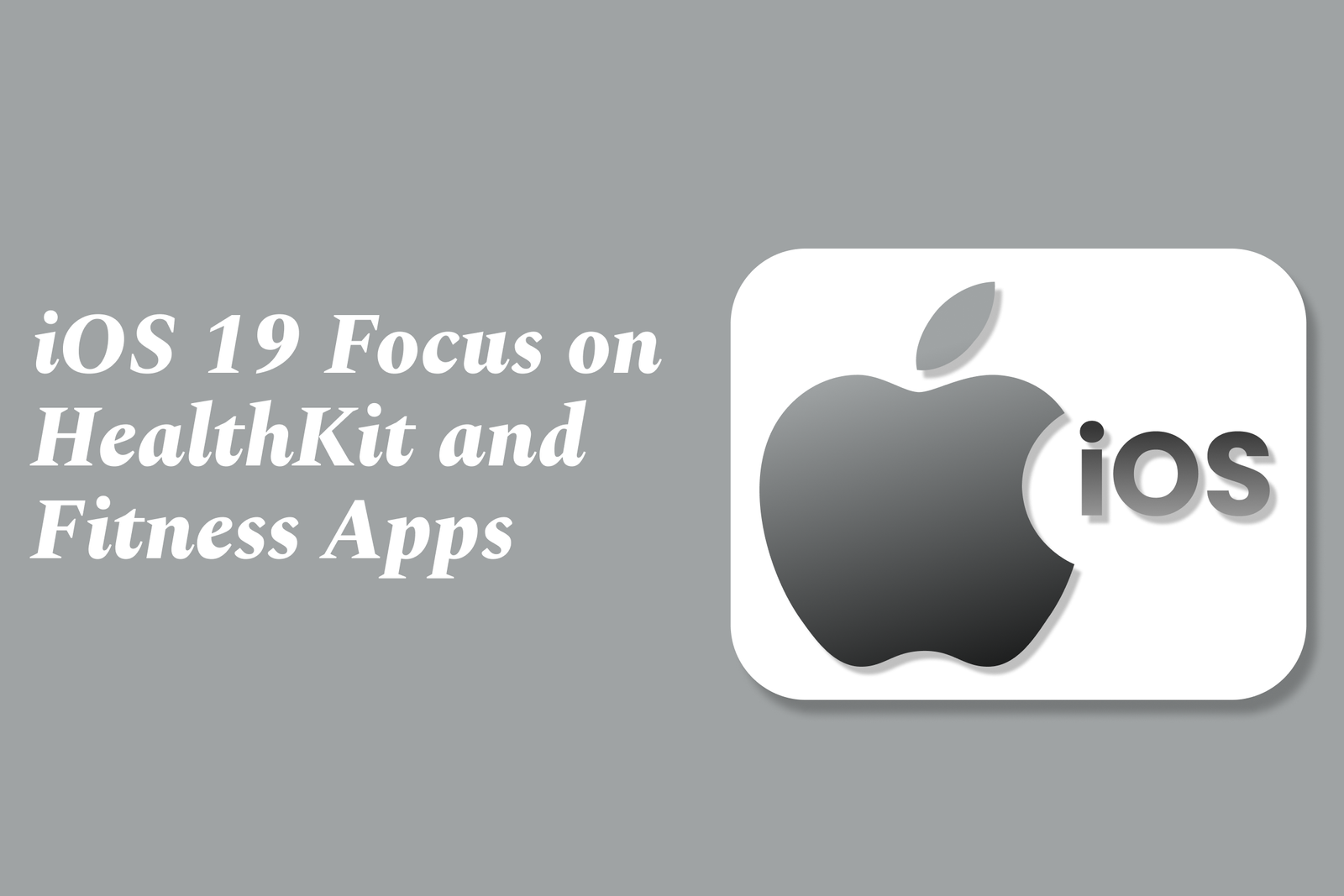iOS 19 focus on HealthKit and fitness apps
iOS 19 enhances HealthKit by supporting standardized medical data sharing (CDA/CCD), empowering users with better control over health records. It also boosts fitness app integration, enabling seamless tracking of workouts like strength training for a holistic health experience.
iOS 19 Focus on HealthKit and Fitness Apps
1 ) Introduction to HealthKit Enhancements in iOS 19
Apple's iOS 19 update emphasizes significant improvements to HealthKit, Apple's health data platform, aimed at empowering users and developers. It enables advanced integration of medical and fitness data, allowing for more comprehensive health tracking and user control over personal health information.
2 ) Integration of Clinical Document Architecture (CDA) and Continuity of Care Document (CCD)
A groundbreaking feature includes support for HL7's CDA and CCD standards within HealthKit. This enables healthcare apps, including electronic health record (EHR) portals, to share and save detailed, standardized health histories in XML format. Users benefit from consolidated access and the ability to grant permissions to apps to read such medical records securely on their devices.
3 ) Empowering Patient Data Access and Sharing
By incorporating CDA/CCD as first class citizens in HealthKit, iOS 19 shifts medical data management towards patient empowerment. Users can directly control their medical data, aligning with initiatives like the NIH and ONC's Sync for Science project, which promotes data accessibility and sharing for clinical and research purposes.
4 ) Fitness and Strength Training App Compatibility with HealthKit
The update enhances compatibility with fitness apps, especially those logging strength training like reps and sets. Users seek apps that seamlessly integrate with HealthKit to track their gym sessions accurately, reflecting an ecosystem supporting diverse exercise types beyond basic cardio or steps.
5 ) Enhanced Health and Fitness Experience via Third Party Apps
Popular fitness applications, such as Google Fit and specialized home workout apps, benefit from iOS 19's improved data framework by providing users with real time insights, workout progress, and detailed exercise guidance, all synchronized with HealthKit. This creates a holistic health and wellness platform across devices.
6 ) Privacy and User Control
iOS 19 maintains a strong emphasis on user privacy, ensuring that health data shared via HealthKit adheres to secure, encrypted standards. Users can manage app permissions finely, ensuring personal health information is protected while providing utility.
7 ) Impact on Future Health Technology
The integration of standardized medical data in HealthKit through iOS 19 paves the way for new health technologies, smarter fitness apps, and better patient engagement tools. It supports ongoing efforts in healthcare interoperability standards like SMART and FHIR, promising an evolving ecosystem where individual health management is streamlined and innovative.
https://justacademy.in/news-detail/react-native?s-secret-sauce-for-lightning-fast-startups
https://justacademy.in/news-detail/apple-swift-6.0-released-with-major-changes
https://justacademy.in/news-detail/most-common-ios-interview-questions-in-2025
https://justacademy.in/news-detail/android-photo-editing-app-trends
https://justacademy.in/news-detail/react-native?s-push-notification-personalization-tricks
Related Posts
Java supports GDPR and data privacy by enabling secure data handling through encryption, controlled access, and precise data management. It allows developers to minimize PII exposure, ensure data confidentiality, and design workflows that comply with data protection regulations effectively.
Java code quality tools have evolved to include advanced static analysis, integrated security checks, and AI-powered code reviews. These updates help developers detect bugs, enforce coding standards, and enhance security, streamlining the development process and improving overall code reliability.
Java remains a cornerstone in big tech companies, evolving with modern features like records, pattern matching, and virtual threads. Its robust ecosystem, enhanced performance, and growing AI integrations keep it vital for both legacy systems and innovative new projects.
Java and CI/CD pipeline optimizations streamline Java application development by automating builds, tests, and deployments. They improve efficiency through parallelization, caching, and secure secrets management, enabling faster feedback loops and more reliable, scalable software delivery.
Java supports modern cryptography standards through its flexible Java Cryptography Architecture (JCA), enabling integration of advanced algorithms like AES, EdDSA, and post-quantum tools. Libraries like Bouncy Castle offer FIPS-certified, hardware-accelerated implementations for secure development.
Java 23 enhances record patterns by enabling concise, direct destructuring of record components within pattern matching, simplifying type checks and data extraction. This improvement boosts code readability and expressiveness by reducing boilerplate in handling immutable data classes.
Java remains a top choice for mobile app backends, powering scalable, secure, and high-performance server-side solutions. Latest trends include cloud-native microservices, reactive programming, and enhanced JVM optimizations, enabling efficient, flexible, and robust mobile backend development.
Java SE 24 and LTS Java SE 21 offer enhanced features and performance, while Apache Spark 4.0.0 introduces Scala 2.13 support and advanced ML and SQL capabilities. Together, they empower developers to build scalable, high-performance data applications with modern tools.
JUnit 5 modernizes Java testing with a modular architecture, improved assertions, and seamless Java 8+ support. Beyond JUnit, tools like Mockito and AssertJ enhance mocking and assertions, creating a powerful, flexible ecosystem for writing clean, efficient Java unit tests.
Java plays a pivotal role in cloud automation tools by providing a robust, platform-independent language used to build scalable automation frameworks like Jenkins and Selenium, enabling efficient CI/CD pipelines, testing, and orchestration across diverse cloud environments.










